|
In his book, The Idiot, Fyodor Dostoyevsky famously wrote that, “Beauty will save the world.” For Christians, this phrase takes on an even deeper meaning theologically. The Christian worldview views truth, beauty, and goodness as reflections of the One who is perfectly True, Good, and Beautiful: God Himself. Authentic expressions of human creativity in some way glorify the ultimate Creator who endowed mankind with the freedom to co-create. We do this in a miraculous way through procreation, but also each time we write, dance, paint, mold, shape, sing, and so on. To celebrate art as a form of evangelization, the Catholic Apostolate Center invited two artists to share their perspectives on creating art and how art can also be a form of spreading the Gospel. For our first artist spotlight, Center contributor Dana Edwards Szigeti interviewed graphic designer Tracy Johnston. Our second artist spotlight features Spoken Word performer Michael Mookie C. Manalili in his own words. Artist Spotlight: Tracy Johnston (Graphic Designer) How did you get involved in your artistic expression? Since high school, Catholic artist and mom Tracy Johnston has been creating art for her family, friends, and others. While earning her college degree in Studio Art at the University of Central Florida (UCF), Johnston designed retreat flyers, youth group T-shirts, and fundraising campaign materials for several groups and organizations, including the UCF Catholic Campus Ministry in which she was very involved. After graduating, she continued this service to young adult ministries and youth ministry. These projects provided Johnston with plenty of experience that helped develop the skills she uses today for her small business. Johnston specializes in hand-painted wood signs, canvas art, chalkboards, printables, and Rosary hangers. Working as a stay-at-home mom and artist has always been a dream for Johnston. While employed as a full-time graphic artist, Johnston began looking for ways to stay at home with her first baby. She decided to open an Etsy shop to sell Catholic artwork – the first big step toward her dream. What is the intersection between your art and faith? How can art be a form of evangelization? As part of her research, Johnston reads a lot of Scripture and saint quotes. These holy words challenge Johnston in her prayer life and serve as inspiration to her. “There is accountability when the products I’m creating are designed to lead people to God and to holiness – it should also be leading me to God and to holiness,” Johnston said. “It is a beautiful thing to be able to spread the words of Christ and the saints, and to know that these pieces I’ve created are in homes all over the country.” While making the artwork for clients, Johnston takes the opportunity to pray for the people who will receive the art. She desires to lead others to prayer, “but it also leads me to prayer,” she said. Sometimes people can be discouraged to share a gift or talent because someone else may be doing something similar, but Johnston says there is always room for more at the table for aspiring Catholic artists. “There is always a need for your light in the world!” she said. “God has blessed us with unique gifts and talents for a reason, and He needs all of us to reach different people and work together to accomplish His mission for the Kingdom.”
Artist Spotlight: Michael Mookie C. Manalili (Spoken Word) Can you tell us a bit about how you became involved in your art/craft? I was fascinated with the question of "why" since I was a tiny child in the Philippines. The way that stories helped explain our world always seemed to intrigue me - from the life lessons of rehabilitation patients my parents worked with to the theology, folklores, and mathematics taught by pink-habited nuns in our schools. I suppose having to learn different languages along the way also helped - not only adopting English but the different "languages" of the neighborhoods I grew up in. And yet, there always seemed to be the faint hum of something else and something more: the unity of our human experiences. I've been involved in "spoken word" from the very beginning. More formally, however, I started writing other forms of poetry in high school (sonnets, haikus, etc) - and later started to dabble into performed poetry as I entered college. There was something about the cadence, pauses, and inflections that you can do in spoken poetry that made it feel more.... alive. What is the intersection between your art and faith? The resonance of art and faith can be both complex and simple. It can be complex insofar as beauty, meaning, and divinity always seems to have a resonance. From the Ancients, the pursuit of eudaimonia (or flourishing as opposed to mere 'happiness') requires actions that are excellent (virtue in Latin, arete in Greek) - and these excellent actions are noted as "beautiful" unto themselves. From the chaos and dawn of the Scriptures, the Spirit/Ruach/Breath of life animated the very dust of the humus and marrow of our bones. The echoes of the Word/Logos/Meaning echo forth in us, through the art of our embodiment and actions. The intersection between art and faith can also be simple insofar as I hope that the meaning echoes forth from the poetry and speaks for itself. The beauty of a sunset amidst creation or bread that is broken and shared for another need not give itself in difficult elaborations - the very presence of something 'beyond-my-self' is given in the experience. How can art be a form of evangelization? I believe that art can orient our awareness beyond ourselves. When I practice spoken word poetry, I write with the audience in mind - not for myself. In the performance of the spoken word - my lived experiences, my meaning, my time, and my very breath are poured out for the other. And after the fact, I hope to "speak in congruence" when I act as a therapist for my patient, mentor for my students, and fellow laborer for my colleagues. Indeed, this is not a form of proselytizing evangelization merely through logic - but an invitation to serve and inspire others, given in the second ending in the Gospel of John: "Do you love me? Feed my sheep. Follow me."
0 Comments
“Remember the days past when, after you had been enlightened, you endure a great contest of suffering. At times you were publicly exposed to abuse and affliction, at other times you associated yourselves with those so treated. You even joined in the sufferings of those in prison and joyfully accepted the confiscation of your property, knowing that you had a better and lasting possession. Therefore, do not throw away your confidence, it will have great recompense. You need endurance to do the will of God and receive what he has promised. ‘For, after just a brief moment, he who is to come shall come, he shall not delay. But my just one shall live by faith, and if he draws back I take no pleasure in him.’ We are not among those who draw back and perish, but among those who have faith and will possess life.” -Hebrews 10:32-39 We are living in an extremely tumultuous time. For over a year, a virulent sickness has swept over the world and caused havoc with our health, our economies, and the very way we relate to one another. It has separated us from friends, co-workers, extended family, and our church community, to name a few. In battling its transmission, we have been forced into isolation—severely limiting gatherings, celebrations together, and even sharing hugs. We have been stretched beyond our normal mode of living and the equilibrium of our lives has been disturbed, with no end clearly in sight. On top of all this, we have experienced political and social unrest – polarized groups rising against one another, causing great division instead of building unity. For any individual, these circumstances could easily defeat us and have us succumb to despair. I think of the Marty Haugen song many of us sing every year during Advent: “For you, O Lord, my soul in stillness waits, truly my hope is in you.” It resounds in my mind and heart as we traverse through such unsettling circumstances. Amidst all the unknowns and unrest, I have witnessed a beautiful vision that overrides all the devastation of the circumstances we are in. I have seen people sacrifice to care for others and people coming together to celebrate the joy of life in trying situations. I have witnessed God living and walking among us through the selfless individuals choosing to stand tall in faith and do all things in love. As Christians we are taught “God is love.” We were created out of love, for love. We are part of God’s great creation and we belong to Him. He guides, instructs, and protects us always. What a magnificent testament to hope in! We pray in our Creed: “I look forward to the resurrection of the dead and the life of the world to come.” This is part of what we profess at Mass before we enter into the liturgy of the Eucharist – which is the source and summit of our faith. We receive the Body, Blood, Soul and Divinity of our Lord to nourish us in body and spirit. This profession of faith, this gift of communion, allows us to walk through all the adversities of life as joyful people who understand our hope lies not in this world but in heaven, forever. This living hope comes from being nurtured by the stories from Scripture, being taught prayers and devotions, receiving the sacraments of Reconciliation and Eucharist frequently, singing hymns of praise and thanksgiving, and practicing acts of kindness daily. What an ironclad defense we have against any evil that would afflict our body or soul! How beautiful it is that as Christians we can be united together in faith wherever we are. This is how I have remained steadfast in hope and overcome fear during these trials that continue to badger us. Surrounding myself with pictures of the Holy Family, the saints, the crucifix, listening to Christ-centered music, praying novenas and prayers, attending Mass often, and sitting in the quiet and listening for God to speak to me are all ways I actively participate in being a person of hope. Even more simply, just keeping my home clean and neat makes it a peaceful sanctuary where I can experience God’s presence. I have no control over the things of this world that loom large over me, but that is okay. As long as I adjust my spiritual armor and remain grounded in Christ, I have every reason to walk in hope, joyously, no matter the circumstances. My husband I adopted the habit of praying Saint Patrick’s Breastplate each morning before going out into the fray and it has born much good fruit in our lives. I offer it to you as another tool to assist you in the battle against evil. We are children of light, born of love and destined for heaven. We belong to Him. He made us a community and all around the world, individually and in groups, we profess our faith boldly, we share His message of love constantly, and we support one another in solidarity of His kingdom. It is our job to remain in Him and He will supply all the grace needed to walk tall in hope. As St. Teresa of Avila said: ‘God withholds Himself from no one who perseveres.’ For more resources to guide you through the COVID-19 pandemic, please click here. For more resources on prayer, please click here. As someone who has always looked forward to the next challenge or opportunity both personally and professionally, I haven’t been very skilled at pausing and reflecting on the past. Writing this passage challenged me to settle myself enough to reflect on my journey as a Catholic father, and for that I am thankful as it contains many opportunities for me to continue to grow as both a Catholic and a father. My journey as a Catholic father is closely intertwined with my Catholic faith. My mother was a practicing Catholic and was always engaged in parish life. She also was a Catholic school teacher for many years. As a result, my sister and I were raised Catholic. In my case, this included attending Catholic school during my primary years and attending a Catholic university. I, like many other young Catholics, made my way to becoming an adult in the Catholic Church through Confirmation. While residing at home led by my mother, my sister and I were actively involved in our local parish. My first set of real-life religious decisions came when I went away to college at the University of Notre Dame. At this point, my religion did not feel like it was my own. It felt like it was my mother’s religion and my connection to it was not as clear. During my years at Notre Dame, a campus with over 150 venues in which to pray or attend Mass, somehow I managed to not regularly attend Mass. During my college years, I met my wife of now 32 years. She, like my mother, was an active Catholic who felt sure of her connection to her faith. During our early years of marriage, while she strongly modeled the Catholic faith with regular Mass attendance and engagement in parish life, I once again managed to get by with a part-time Catholic mentality while still searching for how Catholicism would be “my faith” rather than my mother’s or my spouse’s. But my wife and my mother were role models who kept me close to the Catholic Church during this period of uncertainty and questioning. After being married for just over 3 years, my wife and I conceived our first child. After she was born, we immediately began preparations for our daughter’s first step into the Catholic faith with the sacrament of Baptism. During this process, I had a real awakening: many of the questions I had been asking regarding my faith suddenly seemed selfish and self-serving. Although I felt I was prepared to be a father, I felt helpless in many ways to control the events that would impact my daughter throughout her life. It became clear to me that our daughter, and a few years later our son, would certainly need the love and support of their parents. However, they would also need something more—something that would sustain and anchor them throughout their lives regardless of the circumstance or challenge. This was faith, the Catholic faith. Not only would our children need this faith, but so would I. The blessing of fatherhood for me came with many gifts. My Catholic faith had become planted in some very good soil and, as a result of my fatherhood, began to grow. As our children grew up and became adults, my journeying with them as a father, husband, Catholic, and business leader has had its challenges. There was always an endless stream of competing day to day priorities. It was disappointing when, despite all our best efforts to keep all the balls in the air, inevitably some would drop. Reflecting back, it was being present at those moments that gave my fatherhood and faith deeper meaning—when our children wanted to reach out for support, advice, a kind ear, or just to talk about their journey through both life and faith. In some cases, my children might not see the connection between their life journey and their faith journey, as I certainly didn’t a number of years ago. This provides a great opportunity as a father to create these connections for my children as they become full participants in our society and ultimately leaders in their communities, parishes, and professional lives. Having grown in my faith throughout my vocation as a father, I hope that I can be for my children the same role model of a loving, thriving Catholic faith that my mother presented to me. On December 8th, the Solemnity of the Immaculate Conception of the Blessed Virgin Mary and the 150th anniversary of the proclamation of St. Joseph as patron of the universal church, Pope Francis proclaimed the Year of St. Joseph. To celebrate this historic moment in the universal Church, the Catholic Apostolate Center has launched a series exploring the depth and richness of fatherhood. We will feature one post a month from fathers at different stages of fatherhood, godfathers, spiritual fathers, priests, and grandfathers throughout the year. We invite you to join us this year in learning more about masculinity, fatherhood, the dignity of labor, and the importance of faithfulness to the will of God. As we continue in our life of faith, we invite St. Joseph to be a father to each one of us, guiding us ever closer to his adopted son, Jesus. May he teach us how to be faithful disciples constantly adoring the face of Christ. To kick off our fatherhood series, I’d like to share some powerful quotes from Pope Francis’ Apostolic Letter, Patris Corde, that will help us more deeply come to know the quiet carpenter who helped raise the Son of God. 1. “Each of us can discover in Joseph – the man who goes unnoticed, a daily, discreet and hidden presence – an intercessor, a support and a guide in times of trouble. Saint Joseph reminds us that those who appear hidden or in the shadows can play an incomparable role in the history of salvation.” Throughout salvation history, God has repeatedly chosen the least likely of candidates to accomplish his will. Moses was slow of speech. Peter was a fisherman. Paul was a persecutor of the Church. Joseph was a carpenter. What matters not to the Lord is our status in life, our accolades, our prestige, or our mightiness, but simply that we do His will. St. Joseph modeled that in every moment of his life—from accepting Mary into his home, to naming his Son Jesus, from fleeing to Egypt, to returning to Nazareth. St. Joseph, teach us obedience and humility. 2. “The greatness of Saint Joseph is that he was the spouse of Mary and the father of Jesus. In this way, he placed himself, in the words of Saint John Chrysostom, 'at the service of the entire plan of salvation.'[7]” Joseph was a father in every sense of the word. He guided and protected his family, provided for them, and loved them with tender affection. Everything he did was for the well-being of Mary and Jesus. He is a strong servant leader—one that all men can learn from. To be a father is a great blessing and gift. St. Joseph, help us to be servant leaders. 3. "Saint Paul VI pointed out that Joseph concretely expressed his fatherhood 'by making his life a sacrificial service to the mystery of the incarnation and its redemptive purpose. He employed his legal authority over the Holy Family to devote himself completely to them in his life and work. He turned his human vocation to domestic love into a superhuman oblation of himself, his heart and all his abilities, a love placed at the service of the Messiah who was growing to maturity in his home.'[8]" Just as faith without works is dead, so too is love devoid of service. St. Joseph did not love solely with his words, but by his actions—which is likely why Scripture does not recount any of his speech—with St. Joseph, there was no need. His entire life was a song of love for the Holy Family and for God. St. Joseph, teach us to love as you loved. 4. "Joseph saw Jesus grow daily 'in wisdom and in years and in divine and human favour' (Lk 2:52). As the Lord had done with Israel, so Joseph did with Jesus: he taught him to walk, taking him by the hand; he was for him like a father who raises an infant to his cheeks, bending down to him and feeding him (cf. Hos 11:3-4)." So often, we confuse holiness with otherworldliness. Perhaps we imagine celestial music, bright light, and the presence of angels accompanying the saints wherever they went. But to be holy is to be most fully human—at St. Iraneus said, “The glory of God is man most fully alive.” True holiness means living out our vocations fully, and that includes family life. St. Joseph would have fed Christ and eaten with him, he would have helped him get dressed or tied his sandals, he would have played games with him, sang with him, and worked with him. To be holy is not to be out of touch with reality. St. Joseph was not above the normal duties of fatherhood. St. Joseph, teach us to live out our vocations fully by taking Christ by the hand. 5. "Even through Joseph’s fears, God’s will, his history and his plan were at work. Joseph, then, teaches us that faith in God includes believing that he can work even through our fears, our frailties and our weaknesses. He also teaches us that amid the tempests of life, we must never be afraid to let the Lord steer our course. At times, we want to be in complete control, yet God always sees the bigger picture." A life of holiness does not mean one devoid of fear or suffering. This was true even for Joseph and Mary. What makes Joseph such a model for us is not that he was fearless, but that he trusted in God. He did many things that were difficult and probably not what he had intended for his life, but he trusted and obeyed. He hears the will of God and acts. Later on, Christ himself does not promise a life without the cross, but that He will always remain with us as we carry our crosses. It is when we give God our fears, frailties, and weaknesses that He can transfigure us for His glory. St. Joseph, teach us to trust God. 6. "During the hidden years in Nazareth, Jesus learned at the school of Joseph to do the will of the Father. That will was to be his daily food (cf. Jn 4:34)." The home of the Holy Family was a domestic church in which virtue flourished and sanctity was cultivated. As the head of the family, Joseph served as a priestly figure and an earthly shadow of God the Father. Joseph would have been a man of Scripture who obeyed God’s commandments and lived a life of authenticity and virtue. How beautiful it is to think that Jesus “learned at the school of Joseph.” St. Joseph, teach us to do the will of the Father. 7. "Just as God told Joseph: 'Son of David, do not be afraid!' (Mt 1:20), so he seems to tell us: 'Do not be afraid!' We need to set aside all anger and disappointment, and to embrace the way things are, even when they do not turn out as we wish. Not with mere resignation but with hope and courage. In this way, we become open to a deeper meaning. Our lives can be miraculously reborn if we find the courage to live them in accordance with the Gospel. It does not matter if everything seems to have gone wrong or some things can no longer be fixed. God can make flowers spring up from stony ground. Even if our heart condemns us, 'God is greater than our hearts, and he knows everything'(1 Jn 3:20)." The words of God to Joseph echo once more for us today: do not be afraid! Fear, stress, and confusion are all normal to the human condition. God is not asking us to erase these feelings from our lives, but to give them over to Him. He is calling us to abandon ourselves to His loving providence and not become imprisoned by these emotions. St. Joseph may have feared for his family’s safety and well-being, but he was not consumed by fear or paralyzed by doubt. Pope Francis calls him, “creatively courageous.” “In the face of difficulty,” he writes, “we can either give up and walk away, or somehow engage with it.” Joseph engaged. St. Joseph, teach us to abandon ourselves to God. 8. "Work is a means of participating in the work of salvation, an opportunity to hasten the coming of the Kingdom, to develop our talents and abilities, and to put them at the service of society and fraternal communion. It becomes an opportunity for the fulfilment not only of oneself, but also of that primary cell of society which is the family." Work is a part of God’s plan for humanity. What was not part of God’s plan was toil or fruitless labor that does not uphold mankind’s dignity. Prior to the Fall, Adam was called to till and cultivate the land. Christ has redeemed work once again by enabling us to offer all that we do and unite it to His sacrifice on the Cross. Our work can now have immeasurable meaning and be a means of sanctification. Joseph is also known as St. Joseph the Worker. He worked as a carpenter throughout his life and in this way provided for his family. When we work for others, when we work well and faithfully, our work can be a means of building up the Body of Christ and loving or serving one another. St. Joseph, teach us the dignity of human labor. 9. "Fathers are not born, but made. A man does not become a father simply by bringing a child into the world, but by taking up the responsibility to care for that child. Whenever a man accepts responsibility for the life of another, in some way he becomes a father to that person." Fatherhood is so much more than physical procreation. It involves the cultivation of family and of the human person. It means providing for the spiritual or physical well-being of others. For this reason, priests are also called “Father.” They represent our Heavenly Father and make manifest His graces poured out in the sacraments. They accompany us on our spiritual journeys and act as shepherds guiding us towards holiness. Godfathers, too, play an important role in society by serving as models of holiness for their godchildren and praying and interceding on their behalf. St. Joseph, teach men true masculinity and authentic fatherhood. 10. "The Church too needs fathers." Not only do families need fathers and stable father figures, the Church and world do as well. Authentic fatherhood is an essential part of God’s plan for humanity and is a part of God’s very identity. Society cannot exist and thrive without healthy and holy fathers. God chose to enter the world through a family and was obedient to his foster father Joseph while under his care. Scripture tells us that he "was obedient to them (Joseph and Mary).” St. Joseph, help raise up strong and loving fathers and father figures in our Church and society. As we journey together in the Year of St. Joseph, let us pray to this powerful intercessor using the prayer of Pope Francis, Hail, Guardian of the Redeemer, Spouse of the Blessed Virgin Mary. To you God entrusted his only Son; in you Mary placed her trust; with you Christ became man. Blessed Joseph, to us too, show yourself a father and guide us in the path of life. Obtain for us grace, mercy and courage, and defend us from every evil. Amen. Baptism is one of my favorite subjects to teach my Pre-K students. Often, it is the first time the boys and girls really get a chance to learn about what Baptism is. Other times, it provides them a chance to share about their own sacramental experience or that of someone they know. Throughout the unit, everyone is given a chance to celebrate being part of God’s family in the Church. Learning about Baptism is a PreK standard in their catechesis, and we begin January by learning about Christ’s Baptism in the River Jordan. We learn that it was John the Baptist who prepared the way for Jesus and offered a baptism of repentance. John came before Jesus telling the people to, “’Prepare the way for the Lord!’ preaching a baptism of forgiveness of sins” (Mk 1:3-4).
Like the people whom John baptized and preached to, we likely are feeling in need of renewal. As we welcome this new year, we can also be renewed and cleansed from such a challenging year spiritually, emotionally, and physically! We can start fresh this year, and hear John, “a voice crying out in the desert.” For me, 2020 often felt like a desert. At times, I felt as though my thirst for the Eucharist was unbearable since going to Church was unsafe. Other times, it seemed like I was stranded alone with a new baby and deserted by any additional help. This year has taken its toll on so many, in so many ways, and everyone’s desert has been hard. This pandemic has left many of us yearning, thirsting, and begging the Lord for renewal. Let us consider putting on a new self in renewing our own baptismal promises, participating in the Sacrament of Reconciliation, and entering 2021 with clean and refreshed hearts! My son was welcomed into the Church through Baptism in September. We followed the safety restrictions, had an option for virtual participation, and were able to celebrate our little child of God being cleansed of original sin. It was a humbling and beautiful Mass and Baptism. While I was holding my son, Vincent (named after St. Vincent Pallotti), I could feel God's presence and see it unfolding before my eyes. For a moment, my desert had become an oasis. Life, water, joy, gratitude, my little boy’s squeals, and love were present there with us. I knew there and then that my son had been renewed and would in turn bring some renewal into our lives. Just as my son’s baptism brought refreshing hope into my family’s life, the Lord’s Baptism can bring renewal and hope into our lives as Catholics. At the Lord’s Baptism, he received his mission. May we continue to reflect upon our own mission as disciples in this upcoming year. Our hearts are yearning to be cleansed and renewed amidst our many deserts. Like my students learning about Baptism for the first time, let us engage our hearts and open our ears to the Word anew. Like my son’s Baptism showed me an oasis amidst a desert storm, let us find joy in our own Baptisms this year. Here is a prayer to leave you with as we begin the year anew: Heavenly Father, as a new calendar year begins, cleanse us with new hope and give us nourishment in your Son, Jesus Christ. Wash away our sadness, pain, and fears and help us to know your love throughout this upcoming year. Help us prepare the way for you to come into our hearts, oh Lord. Turn our own desert into oasis. In Jesus' name we pray, Amen. January 1, Catholics celebrate the Solemnity of Mary, Mother of God, one of the holy days of obligation in the Church. This celebration is a special way to celebrate Mary’s special role in God’s plan in the Christmas story, as well as a way to start the year full of grace, ready to tackle those New Year’s resolutions. Although the practice of New Year’s resolutions is not distinctly Christian, our resolutions gain a new significance when we attend to Mary’s story. Discern Your Resolutions The story of Mary’s call to motherhood is a paradigm of Biblical discernment. When Mary received Gabriel’s announcement, “She was greatly troubled at what was said and pondered what sort of greeting this might be” (Luke 1:29). In faith, Mary wrestles with God’s calling. Even after her great “Yes,” and giving birth, “Mary kept all these things, reflecting on them in her heart” (Luke 2:19), revealing she is still learning what her vocation means and how to live it. What’s this got to do with New Year’s resolutions? Discernment is a spiritual, prayerful decision-making process between possible courses of action. What specific habits or practices is God calling you to work on this year? There are plenty of worthwhile resolutions—there’s a million things I need work on—but it’s just not all possible to accomplish in a year, or ever. Prioritize resolutions that strengthen your personal vocation. Expect Without Expectations Mary’s faith is “expectant” but without “expectations.” In other words, Mary expects God to act in her life, but doesn’t place limitations on who, what, when, and where. Mary trusts the angel Gabriel’s words, “nothing will be impossible for God” and is free to live and say, “May it be done to me according to your word” (Luke 1:37-38). Maybe God will bring about the outcomes of your resolution through unexpected ways or people. That’s the way it often works in scripture and the lives of the Saints. When you give God permission to act on his terms, you are free to boldly expect that God will do new and great things in your life this year. Make Room For Others Even free from original sin, God uses other people to accomplish his plan in Mary’s life. Mary’s story was made possible through her reliance upon truthful friends and family. Her cousin Elizabeth speaks truth and hope into her situation (Luke 1:42), and her husband Joseph goes to heroic lengths to let God’s call come to fruition. Share your resolution with someone you trust. Whether it’s a major lifestyle change or not, ask them to keep you accountable, and always with prayer. Accountability also prevents goals from becoming purely self-centered or even idols from seeking God first (e.g., just to impress people at the beach). No one can accomplish your resolution for you, but you can find people to accomplish it with you. Resolve to Live the Truth Mary shows the true path by always making everything about Jesus. “Do whatever He tells you” (John 2:5). A true personal change will always lead us to more fully reflect our true identities as sons and daughters created in the image and likeness of God. But the truth is, sometimes resolutions are born of self-loathing or lies we’ve bought instead of the desire to more fully reflect God’s truth. This often happens with body or image-related resolutions; to be thinner, smarter, stronger, etc. While these aren’t de facto bad things, the tendency becomes seeking physical solutions for a spiritual or psychological wound that really needs healing. That’s why discernment with spiritual direction and honest accountability is vital. Exercise programs or supplements say we should consult a physician first- but it’s also true when it applies to spiritual exercises for our soul! Mary and the saints save us from spiritual self-medication, which close us off from the Divine Physician. We find ourselves approaching the end of a year perhaps unlike any other of recent memory. The turmoil and uncertainty of the past months have presented unique challenges—missing out on time with loved ones, in-person celebrations, socializing freely, and carrying out our normal routines. With all this adjustment, perhaps we have had to face challenges to our faith, our hope, and our spirits. Nevertheless, the faithful can assuredly find renewal and peace in the Christmas season as we celebrate God becoming one of us in all ways but sin. While we shall always have to face challenges in life, recent events and how society has responded to them can motivate us to re-evaluate where we look to center ourselves and our priorities in life.
The world celebrates Christmas with music, movies, decorations, presents, and other traditions that set it apart from the rest of the calendar year. With the increasing commercialization of Christmas, the true meaning of the season has become obscured. The bright lights, noise, and pressures of the holiday strongly contrast the stillness and the simplicity of what happened two thousand years ago far away in the town of Bethlehem. The Gospels describe various accounts surrounding the mystery of the Incarnation; especially in 2020 we can be confident that the Christmas story continues to have meaning and reminds us of important lessons to keep in our hearts all year long. The world our Lord was born into is vividly recalled, during the Vigil Mass of Christmas, with a reading of the Proclamation of the Birth of Christ from the Roman Martyrology. The setting framed by the author details a world under the rule of the powerful Roman Empire, with God’s chosen people, who are forced to pay regular tribute to a ruler they did not select. By that point, the hope for a liberating Messiah by the Jews had narrowed to an expectation that the Messiah would wage a militaristic campaign and preside over an earthly kingdom of God’s people. It was under these circumstances that the Holy Family finally arrived in the City of David, as observed by Fulton Sheen in The Life of Christ: There was no room in the inn but there was room in the stable. The inn was the gathering place of public opinion, the focal point of the world's moods, the rendezvous of the worldly, the rallying place of the popular and the successful. But there's no room in the place where the world gathers. The stable is a place for outcasts, the ignored, and the forgotten. The world might have expected the Son of God to be born in an inn; a stable would certainly be the last place in the world where one would look for him. The lesson is: divinity is always where you least expect to find it. So the Son of God-Made-Man is invited to enter into his own world through a back door. The adorers who made their way to the Christ-child certainly had their own situations and positions to consider, but they nevertheless left behind their comforts and security to answer a higher calling. The shepherds made haste after the revelation by the angels; the wise men set off on a long journey to seek out the mystery the star guided them to. They came in humility and awe to behold God’s incarnate love in the darkness and stillness of the winter night. The experience was unlike any other in history; they returned to their lives changed by encountering the Lord God Himself. This Christmas season, we may not have a star to guide us through the chaos of the world to the blissful peace of Christ, but the invitation to do Him homage is not diminished. No matter our state in life or the challenges we face, we can be confident that the Lord calls each of us to Himself, rising above our troubles and beyond any comforts the world could offer. We have cause to rejoice! The God Who ordered the universe and made all things good has humbled Himself and entered into this world to save us from our sins and claim us as His own through our faith. We cannot lose sight of this significant truth: the pilgrimage through the world in this life does not end in pointless suffering or hopelessness but in happy reunion with our God for all time. We liken ourselves to the first adorers who could not understand what had been revealed to them, but were so moved by the experience that they returned praising God and sharing what they learned with all they encounter. May our encounter with the Christ renew our hope, faith, and love to be shared with all nations. Glory to the newborn King! Forever and ever, Amen. A lyric of one of my favorite Advent hymns, “O Holy Night,” shares the simple yet profound posture in which we are called to enter into the Advent and Christmas seasons: on our knees. Perhaps many of us already find ourselves there—either out of reverence or sheer exhaustion. For many, the year 2020 will forever be overshadowed by confusion, darkness, anxiety, fear or stress due to the COVID-19 pandemic. Perhaps you, like me, have just wanted it all to be over. We may feel tired of the masks, the canceled events, the physical distance from our friends and loved ones, uncertain job security, or the fear for our health and for those around us. Our hands are raw from sanitizer. Our hearts are raw from stress and confusion. Pandemic fatigue is real. Is this exhaustion, stress, and confusion similar to what the Jewish people felt as they traversed to their hometowns for Caesar Augustus’ census two thousand years ago? “Where is the Savior foretold by the prophets?” they must have thought. “Where is the king who would overthrow all oppressors and establish God’s kingdom forever? Where is God? And why does he seem silent?” For God’s Chosen People, continued faith and hope must have been a hard choice. For God’s chosen people, continued faith and hope is a hard choice. And it is precisely when we are caught up in our feelings of negativity, sadness, or desolation that we fail to see God at work. Too consumed by looking inward, we forget to look up and see the star. It is precisely for this reason that hardly anyone attended the most important event in all of human history: the birth of the Savior of the World, a child born quietly in the recesses of Bethlehem. So where do we find ourselves? Are we grumbling that God has not done enough to fix our broken situation? Are we stressed about the logistics to get our family to the census? Are we awaiting our own version of the Messiah, making our own golden calves? Do we look back longingly, preferring the slavery of Egypt to the wilderness? Or have we abandoned our relationship with God altogether? Finally, are we on our knees? Mary models this posture with her very life. I cannot help but imagine that she received the news from the Angel Gabriel on her knees. “How can this be?” she asked, greatly troubled at what was said in the midst of the holy and miraculous encounter. Her fiat was only possible because of her posture of humility. This receptivity is what every Christian is called to emulate. This posture in the presence of God is also important because kneeling is a physical reminder of reality: God is God, and we are not. Put another way, God is Creator, we are created. By kneeling in prayer, we enter into a dialogue with God in a posture of humility that reflects the true order of reality. Kneeling is also a posture of vulnerability that manifests our littleness before a great God. This littleness is not belittling, but reveals our true dignity. We have the courage to kneel because, in a sense, God knelt first. As St. Paul reminds us, “He emptied himself, taking the form of a slave, coming in human likeness; and found human in appearance, he humbled himself” (Phil 2:7). How can we then fear to approach such a gentle and humble Savior? If 2020 has taught us anything, it’s that we are not in control. Mary experienced this too. She did not anticipate a virgin birth, losing her Son for three days, or watching her Son’s crucifixion. This lack of human control is the truth regardless, but it’s a reality often obscured by our schedules, appointments, bank accounts, occupations, or social events. And when many of these good things have been stripped from our day-to-day lives, we are forced to reckon with our vulnerability. We are reminded that, ultimately, our Good Father holds us and our world in existence. We fall to our knees. Let us therefore approach Him lovingly this Christmas in this humble posture. Let us honor and reverence Him by offering to the Christ-child all our insecurities, fears, or limitations. I invite you to offer each sacrifice, hardship, or suffering as a piece of straw to warm the Christ-child this season. To look for the guiding star each day that leads us to Bethlehem. To name throughout the day what you are thankful for rather than succumb to grumbling. To spend some time reading Scripture, attending a Mass virtually or in person, sharing food or gifts with the needy, or singing an Advent hymn. To open our hearts to God’s way of doing things rather than grasping for control on our own. To fall on your knees. This season, may we join the shepherds, the wise men, and all the angels and saints in this humble posture filled with breathless hope, joy, and excitement to adore Christ the Lord, the newborn King, the answer to each prayer, the fulfillment of all desire. And may we prepare a full, warm manger for the Christ-child to rest in on Christmas Day. Yesterday we celebrated the Memorial of Our Lady of the Rosary--a Feast Day that reminds of the important role that the rosary plays in our daily lives. It is a form of prayer that we seek when we are struggling and need the comforting embrace of a mother. It is a form of prayer that is joyful, celebrating our successes with Christ through Mary.
Devotions to Mary have always been an important aspect of my faith. In particular, the rosary has helped me through many tough times in my life and given me the strength to continue forming my life to Christ, but its importance was reinforced in the first few months of my college career when I joined the Knights of Columbus. Upon entering the Order, Knights are given a rosary as a symbol of our devotion to Mary and a reality of our reliance on her example and her intercession with God But why should we say the rosary? Saint John Paul II gives a clear picture of the rosary’s importance: “The Rosary mystically transports us to Mary's side as she is busy watching over the human growth of Christ in the home of Nazareth. This enables her to train us and to mold us with the same care, until Christ is “fully formed” in us.” When we pray the rosary, many of us are seeking the warm embrace of a mother, someone who can reassure us in our fears and give us the strength to live out each day for Christ. Mary is our mother in every sense of that word. Christ, moments from death, says to Mary, “Behold, your son,” and to the disciple whom he loved, “Behold, your mother.” With these words Christ gives Mary to all of us as our mother, the Mother of the Church, and with these words we are formed by her just as Christ was. The rosary does not pull our attention away from Christ, but rather joins us with him through our love of Mary. John Paul II tells us in Rosarium Virginis Mariae, “Never as in the Rosary do the life of Jesus and that of Mary appear so deeply joined. Mary lives only in Christ and for Christ!” The rosary allows us to participate in that union and calls us to share in the life of Christ through our relationship with his Mother. Each time we pray the rosary we focus on the Joyful, Sorrowful, Glorious, or Luminous mysteries. These are not only drawing us closer to Mary, but to the life of Christ as each set of mysteries is grounded in the Gospel. When we pray the rosary we do not just repeat prayers over and over again, but rather we are given the opportunity to live out a different aspect of the life of Christ with each decade. Repetition is an important aspect of the rosary, but is it actually repetition? Archbishop Fulton Sheen in his book “The World’s First Love” tells us that it is not repetition for each time we say the rosary, “we are saying to God, the Trinity, to the Incarnate Saviour, to the Blessed Mother: "I love you, I love you, I love you." Each time it means something different, because, at each decade, our mind is moving to a new demonstration of the Saviour's love.” Who better to remind us of the Christ’s love than Mary, the Mother of God, our mother, who raised Jesus, formed him, and followed him. Who better to emulate than Mary, who watched her son suffer and die on the cross for our salvation. Each time we say the rosary we are embraced by our mother, we are renewed in our faith, and we are reminded of God’s love. “Remember, O most gracious Virgin Mary, that never was it known that anyone who fled to thy protection, implored thy help, or sought thine intercession was left unaided. Inspired by this confidence, I fly unto thee, O Virgin of virgins, my mother; to thee do I come, before thee I stand, sinful and sorrowful. O Mother of the Word Incarnate, despise not my petitions, but in thy mercy hear and answer me. Amen.” *This post was originally published on October 7, 2014. Nicholas Shields is a young professional from Washington, D.C. What does it mean to be bicultural? It means that a person can represent and identify with more than one country. I have been given the blessing of representing three cultures at the same time: I am Mexican, Salvadorian, and American. Representing these three cultures has given me the opportunity to see God’s beautiful creation from different perspectives and enriched my understanding of the Church. As I have grown, I’ve encountered Christ who has revealed my vocation and his love for me through this tricultural blessing. As a child, all I knew about my faith was either through my parents or Sunday school at my local parish. I was taught Bible stories, saint stories, and prayers in Spanish. I was happy to be in that bubble away from the math problems at school, my English cartoons, and anything related to the American culture. These were the only times I could actually learn about who I was as a Catholic Latina. My Mexican and Salvadorian traditions were intertwined with my faith. Being Catholic and part of the Latino community meant we professed our love for God through our actions. Our focus wasn’t reading or studying the faith because that was never in our reach to dive into. Instead, the community learned that their actions were their way to live the mission of Christ in their day to day lives. This was something I learned very early on. I also learned how important it was to my parents for me to learn about our faith and its traditions. One of my favorite memories will always be the celebration of the Feast of Our Lady of Guadalupe. It was always full of color, and the church was filled with the smell of red roses. What I remember the most is staying up past my bedtime, but also being able to see the faith and the love many people had towards our Blessed Mother. After many years of being in my little Spanish bubble, my parents decided to send me to a private Catholic school. This is where I realized there was way more to my faith than I was taught at Sunday school. I realized that I had to burst my bubble to actually learn more about my faith in English. It was not easy to understand the different prayers in English or to take religion classes in English. My experience in private Catholic school also helped me realize that there was more to my faith than just my Spanish world. I decided to become the student that was always asking different theological questions during religion class. I became obsessed with learning about the different doctrines and about the significance of the church’s architecture. All of this opened a new door to my spiritual life. I could experience Christ through Church teaching as well as serve him through my actions. I became aware that there was no need to separate all three cultures for different aspects of my life! Somehow, all my cultures were blending together in ways I would have never imagined. All of them could work together to strengthen my faith. Over many years, I have learned that being bilingual and tricultural means I can live out my faith in unique ways. I can discover Christ not only through the combination of these cultures, but also within each individual one. Now, I have no need for different bubbles to live out my faith because God created me to praise him and uniquely evangelize about his love. Each culture has helped me deepen my relationship with Christ. As a lector in the Spanish Mass, I am able to read and analyze the Word of God. Later on, these readings help me have meaningful conversations in my Theology classes at The Catholic University of America. By learning about different resources and reading in class, I have also learned more about how I can help my Latino community. Now as a young adult, I have become more aware that my cultures, traditions, and languages have molded my faith and shaped my way of life as a member of the laity of the Church. For more resources on cultural diversity, please click here. “Because children have abounding vitality, because they are in spirit fierce and free, therefore they want things repeated and unchanged. They always say, "Do it again"; and the grown-up person does it again until he is nearly dead. For grown-up people are not strong enough to exult in monotony. But perhaps God is strong enough to exult in monotony. It is possible that God says every morning, "Do it again" to the sun; and every evening, "Do it again" to the moon. It may not be automatic necessity that makes all daisies alike; it may be that God makes every daisy separately, but has never got tired of making them. It may be that He has the eternal appetite of infancy; for we have sinned and grown old, and our Father is younger than we.” G.K. Chesterton, Orthodoxy Today on the feast day of St. Therese of Lisieux, affectionately known as the Little Flower, I turn to my sons’ example in accepting everything completely from God. My almost two-year-old is predictable: he loves blueberries, watching the garbage truck pick up trash on Mondays and Fridays, and playing in the backyard. Recently he has taken to playing with a giant cardboard box that my husband engineered into a “cottage” with a window and a workable door. The joy and excitement he exudes each morning playing with his cardboard cottage didn’t strike me at first. But after a few rounds of him serving me imaginary chocolate milk and tea from his little abode, I realized that this joy, the same joy and freedom he has when running ferociously to the front of the house to see the garbage being picked up, is the joy and freedom St. Therese of Lisieux wrote about and emulated in her life. “To remain a child before God means to recognize our nothingness, to expect everything from God. It is not to become discouraged over our failings, for our children fall often, but they themselves are too little to hurt themselves very much.” St. Therese of Lisieux Therese gives us the example of radical abandonment to the Father’s will. When we take a snapshot of her life—where she lived most of her life, whom she met, what accolades she was awarded—we see that her life was not much in worldly standards. And yet, Therese is honored with the title “Doctor of the Church.” Her writings and her example of charity beckon us to take a closer look at this simple and great saint. While Saint Therese is a heavily pestered saint when it comes to intercession (as her intercession is known to be great) and her quotes are seen often, today let us take after her childlikeness and see the world through her eyes with childlike abandonment to God. I encourage you to find five beautiful things in the mundane of your day that your eye has not yet “truly” seen before. Thank and praise God for the life He has given you, in all its sufferings and joys, and ask for St. Therese’s intercession in seeing the beauty in the mundane. For more resources on Marriage and Family, please click here. Amid a time of challenge and difficulty, joy makes appearances in many ways. Recently, several Catholic Apostolate Center staff members and collaborators deepened their baptismal call through Ordination to the Priesthood and Marriage. We also celebrated the Baptism of the child of one of our staff members. The child is named Vincent for St. Vincent Pallotti. In every case, these celebrations were delayed and greatly reduced in size due to the pandemic, but the joy of these days found in the hope of Christ was evident in every one of them. Fr. Alex Boucher, a staff member during the first years of the Center and a current collaborator, was ordained to the priesthood for the Diocese of Portland (Maine). Hally Moreno, Marketing Coordinator, celebrated her marriage to Benny Morales. Center Collaborator, Fr. Joseph Hubbard was ordained to the priesthood for the Archdiocese of Boston. Vincent Scott Pierno, son of Senior Consultant, Chris Pierno, and blog contributor, Krissy Pierno, was baptized. His godfather is Fr. Alex Boucher. At each of these events, Center team members participated in the liturgies as part of the accompaniment that is our hallmark and rooted in the charism of St. Vincent Pallotti. We had accompanied them in their discernment and joined in the celebration. They all live their lives as apostles of Christ and witness to others not only through their particular vocation in life, but also in their support of one another. Such spiritual friendship was part of the life of St. Vincent Pallotti and is an aspect of the Catholic Apostolate Center that is intrinsic to our apostolic work. We support one another in prayer and in our lives in Christ. Each will do this in a unique way, but we are all called to accompany one another in life and in faith. May the Charity of Christ urge us on!
I must admit – the isolation that comes with social distancing during the Covid-19 pandemic is hitting me with waves of cabin fever and missing friends and family terribly. I’m incredibly thankful I am able to “quarantine” with my husband and dog, while at the same time I mourn the social engagements of seeing family, friends, and co-workers in person. My husband and I recently got married in May, and we’ve become parishioners of our local church. With our marriage came a move for me, as we previously had a long-distance relationship. When I’ve moved in the past, I’ve typically sought friendships and activities through my local Catholic church; finding my church family is always my first step in getting accustomed to a new town. Social distancing and canceled or online events make forming those relationships and feeling connected more challenging. It’s hard enough without a pandemic to be the new person! Many moments throughout the day, I ask myself why I find it so difficult to be away from others. After prayer and reflection, I realized seclusion is hard because God created us for community. God gave Adam a partner and said it wasn’t good for man to be alone (cf Genesis 2:18). We need a support system - the Body of Christ. In Matthew 18:20, Jesus says, “For where two or three are gathered together in my name, there am I in the midst of them.” When we encounter others, we are assured God is with us. This is especially felt when we have a Bible study, small group, or other faith-sharing activities with our fellow Christians. Hebrews 10:24-25 says, “We must consider how to rouse one another to love and good works. We should not stay away from our assembly, as is the custom of some, but encourage one another, and this all the more as you see the day drawing near.” This passage served as a wake-up call to me. I think of how much more I can do to check in on friends, family, neighbors, and coworkers, and to find creative ways of showing love. I want to share a few ideas of some actions that have helped my family and me cope through the isolation that comes with this current pandemic. 1.Call 1-2 People Each Week or Write “Snail Mail” Letters. My mom started calling one to two friends a week from church to check in and see how they were doing. She told me how much she enjoyed catching up with her friends and it meant a lot to her friends as well. I have done the same, and it’s so refreshing to hear my friends’ voices and what they are up to. I’ve also been sending cards for birthdays and ‘thinking about you’ notes or texts as well. 2.Consider Participating in a Virtual Rosary Recitation with Others. Friends of my mom’s invited her to say a daily virtual rosary with them. Together from their individual homes, they pray the Holy Land rosary with Fr. Mitch Pacwa. My mom has shared with me how much she enjoys talking with her friends after the recitations about the holy sites where mysteries of the rosary took place. 3.Make Donations. Many people are still in need of toiletry and food items. Food banks and other charitable organizations are continuing to provide services. Consider calling a local charity to learn about their donation protocols as some are taking items by appointment and need some items more than others. 4.Try Daily Mass. In July I felt very far from God. It had been two months since having the Eucharist at my wedding. I spoke with a friend who encouraged me to try attending daily Mass since fewer people were attending in person compared to weekend Masses. After attending daily Mass, I felt more in communion with God and with my fellow Catholics. My husband and I continue to attend Mass in person on Fridays and now on Sundays. My church, like many, encourages mask-wearing and has employed other precautions, such as seating arrangements, for everyone’s safety. Recently, one of the Brothers of Hope at my church approached us to introduce himself as he hadn’t met many folks, especially young adults like him. By reaching out, this Brother made us feel more connected to our parish and to fellow Catholics. 5.Enjoy Nature or Take a Walk Around Your Neighborhood. My husband and I have been taking our dog for walks in the neighborhood. We see many of our neighbors having socially distanced dates from their driveways, which is encouraging. For a change of scenery, we went to our local botanical gardens and have planned nature trail walks. 6.Aid Elderly Neighbors or Family. Check-in on family members and neighbors who may be elderly or immunocompromised to see if they need help with errands so they don’t have to enter stores. Sometimes, they may just need a friendly voice to chat with on the phone. 7.Have Socially Distanced Friend/Family Dates. If you’re comfortable with the idea, you can still enjoy seeing friends and family in a limited number either at one another’s houses or at a restaurant. Separately, we’ve seen a couple who are close friends with us as well as my husband’s parents about once a month. We keep these interactions socially distanced, wear masks, and use plenty of hand sanitizer. For more ideas on growing spiritually during COVID-19, please click here. During my fifth year with D.C. United, the team brought in a nutrition specialist. The specialist gave his presentation and then looked toward a table in the middle of the locker room that held about 40 pill bottles of vitamins, supplements, mild pain relievers, gels, powders, and who knows what else. The nutritionist then walked over to the table, looked back to us, and said, “you know, if you just eat well you can throw all of these out. In fact, you’d be better off doing that.” He left the locker room five minutes later and never came back. For my first five years at DCU, I had been taking those vitamins and supplements at the recommendation of our strength and conditioning coaches and athletic trainers. Now a certified nutritionist deemed the whole thing a waste of time and had even said they could hinder our performance—I wondered what exactly to do. Who should I listen to? This memory has stayed with me because it matters a lot for an athlete what you do with your body. It matters how you train, eat, sleep, relax, and recover. You need to know what is helpful for your athletic development and what is unhelpful. I wanted to know if the pills and supplements helped me or hindered me. This all applies to athletic prudence in the natural realm. Prudence is the ability to judge rightly and act according to that knowledge. It is being able to think through things correctly and then make the right choice. Thus, athletic prudence is the ability to choose and act rightly in the realm of an athletic pursuit. We make decisions and then act based upon what we have concluded is actually helpful or unhelpful in relation to our goal. I would like to apply this same line of thinking to the virtue of prudence in the supernatural realm. We should be asking what is helpful or unhelpful in terms of our spiritual lives. Just like the nutritionist condemning our pill vault and making me wonder what was actually helpful for my soccer career, we should ask what in our lives helps or hinders us from going to God. In order for us to do this, of course, we must acknowledge that God is both our goal and a worthy (the most worthy!) goal at that. When I got to the height of my playing career I was devastatingly depressed for a very concentrated span of time (only several days). For months I pondered why I hit such a low point amidst more success than I had ever expected. Eventually, through the help of the Holy Spirit, I realized that God allowed me to feel the weight of my success without Him. It was an incredible grace—but also one that was difficult to really learn. Over time the truth that my soul was more important than my sport sunk in. I realized that much of what I had made my life about was, in the end, unhelpful for reaching the ultimate Goal who is God. I started applying my athletic thinking to my spiritual life. I started asking the right questions—is this helpful or unhelpful for my spiritual life? Should I be hanging out with this group of friends so much? Are my weekend habits really bringing joy to my life? Am I living as the person I want to be? Do I know who I want to be? These questions led—and continue to lead—me to Jesus, and I find myself needing to ask them again and again. Do the decisions I make help me become who I want to be? Or are my decisions hindering me from being that person? Athletic prudence helps athletes maximize their potential and use their God-given gifts to the best of their ability. This same principle can—and should—be applied to our spiritual lives. Are the decisions, actions, and principles that guide my life helpful? Are they leading me in a good direction? Prudence, says St. Thomas Aquinas, is the mother of the virtues. You cannot possess any virtue without the virtue of prudence because prudence is what enables us to recognize what is truly good (helpful) and then act according to that good. No athlete can become great apart from athletic prudence because athletic prudence enables the athlete to recognize and act upon what helps him or her become a good athlete. Far more important, however, is the realization that no person can become who they were created to be apart from supernatural prudence. It is not possible to follow Christ without first asking yourself what exactly it is you’re already following—what is it that shapes your decisions? It may be a desire for comfort, power, status, honor, wealth, success, popularity, or any number of things. But they all fall short. To be prudent you must know the end goal. You cannot attain the virtue of prudence in the whole of life without knowing that “it is Jesus in fact that you seek when you dream of happiness.” 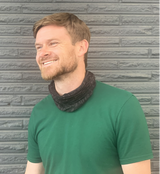 Taylor Kemp is an instructor for the Denver Catholic Biblical School as part of the St. John Vianney Seminary Lay Division in the Archdiocese of Denver. He is a former professional soccer player, amassing over 100 appearances over six-years in Major League Soccer (MLS) for D.C. United, and playing for both the youth and full United States Men’s National Team. Taylor holds an MA in Theology from the Augustine Institute and BS in Business Management from the University of Maryland, College Park. The month of September is ripe with themes of renewal. Schools begin a new academic year. Some businesses start a new fiscal year. The season of autumn is bright with arboreal colors as some trees begin to turn dormant. Fields and gardens are harvested.
Those of us with yards know now is also the time to prepare and reseed our lawns for new grass to grow. For many, it’s a labor of love to cultivate the land. First the land needs clearing. Rocky soil demands aeration. Soil testing will help with fertilizing. And getting the right seed is critical! Furthermore, once planted, the new seed must be constantly watered, watched, and protected from harsh elements and nefarious agents. Is there a lesson from all this? Yes, great results require great effort, but we are also reminded of the parables of the sower and the weeds (Matthew 13:1-30). What I always liked about these parables was that our Lord Himself explains them so clearly: the Word of God is given to each of us; how it takes root is up to us. The seeds in the parable represent the deposit of faith we have each been entrusted to grow, nourish, and protect as baptized Christians. For those of us with children, we are especially aware of the great gift and responsibility of entrusting the Faith to our descendants. So precious and critical is this sharing that the Church urges parents to have their children baptized without delay. During the Rite of Baptism for an infant, the priest or deacon says to the parents: You have asked to have your child baptized. In doing so you are accepting the responsibility of training him (her) in the practice of the faith. It will be your duty to bring him (her) up to keep God's commandments as Christ taught us, by loving God and our neighbor. Do you clearly understand what you are undertaking? As is the case with any landscaping, the work of spiritual cultivation cannot be underestimated or haphazard. Raising a child in the Faith begins and is centered on the life at home. The environment of faith is so much more than memorizing Scripture or parts of the Catechism; the Faith must be lived! A family that prays together, goes to Mass regularly, is firm in morality and pursuing virtue, and encourages service and charity takes seriously the charge given at Baptism. The deposit of faith is planted at the immersion and anointing of the child during the rites of the sacrament; the family then works and tends to and cares for the germination and growth of this divine inspiration. As good seed sprouts among weeds, so too will the child: he or she will encounter the ways of the world that are ignorant of God; he or she will be tempted by sin; he or she may wander as a lost sheep, though the identity claimed at Baptism never disappears. As baptized believers, do we understand and appreciate what has been given to us? Do we help cultivate our spiritual lives in a way that fosters growth and true life? Pope Francis has urged us to remember and celebrate our baptism date: To forget our baptism means to expose ourselves to the risk of losing our memory of what the Lord has done in us. We risk ending up considering it only as something that happened in the past, and not the Sacrament in which we became new creatures and were clothed with Christ, made part of the relationship of Jesus with God the Father. Thanks to Baptism, we are also able to forgive and love those who offend us and do us harm; we are able to recognize in the last and in the poor the face of the Lord who visits us and is close to us. In short, more than a sociological moment that inscribes our name in the parish register, the day of our baptism constitutes a commitment and the identity card of the believer. The Sacrament of Baptism continues to sustain us through life: we are children of the Most High God! We may go through periods of spiritual drought or darkness, but we can find refreshment and renewal by attending Holy Mass, washing away sin through repentant confessions, and sustaining lives of prayer, faith, hope, and love. Then, having known the fruits of labor initiated by our parents, we can indeed be drawn up as part of the Lord’s bountiful harvest as He Himself has planted: “It [is] very good.” |
Details
Archives
April 2024
Categories
All
|
About |
Media |
© COPYRIGHT 2024 | ALL RIGHTS RESERVED

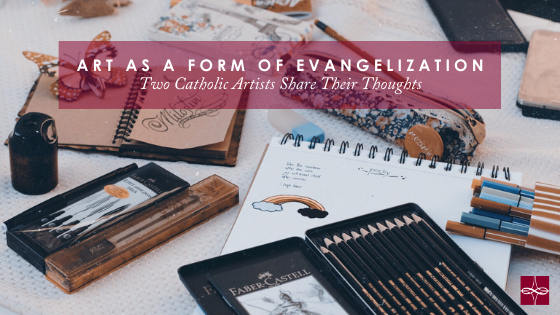

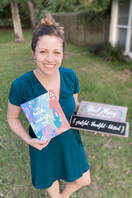

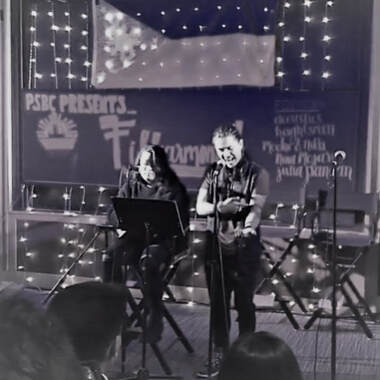
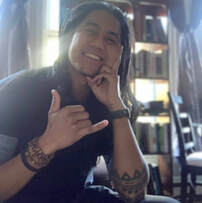


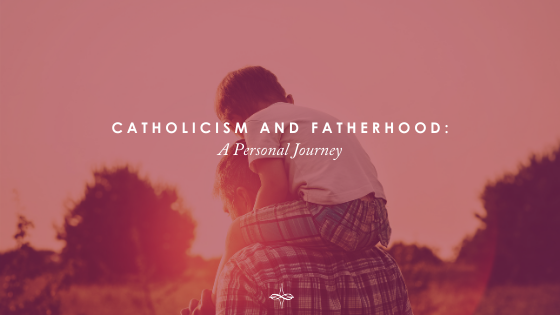
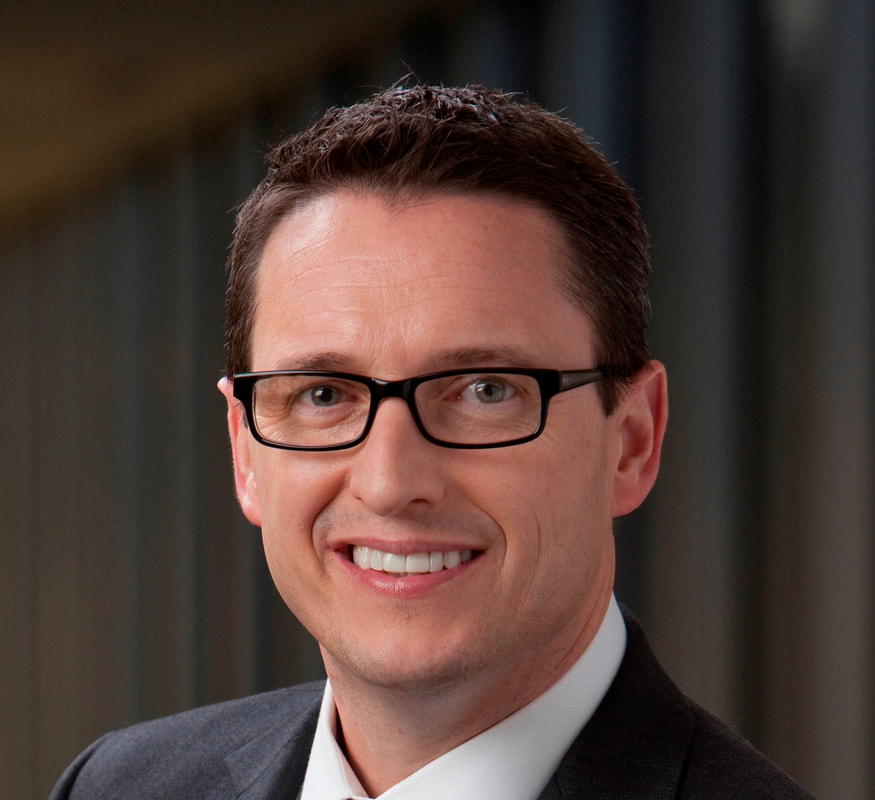
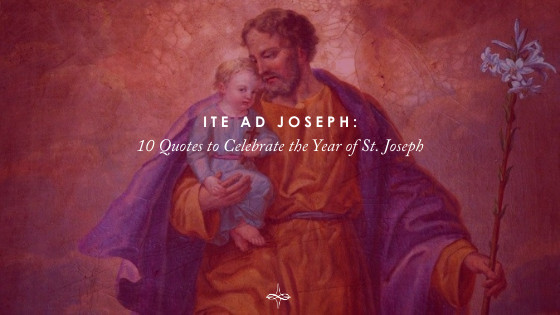

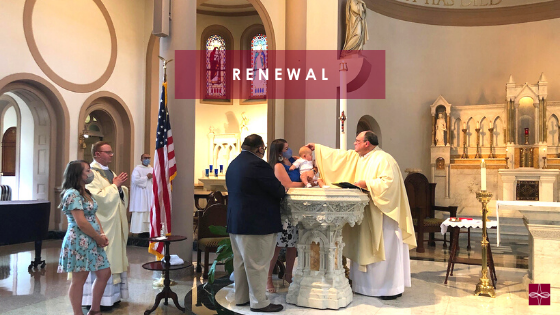
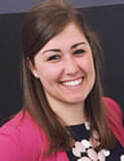
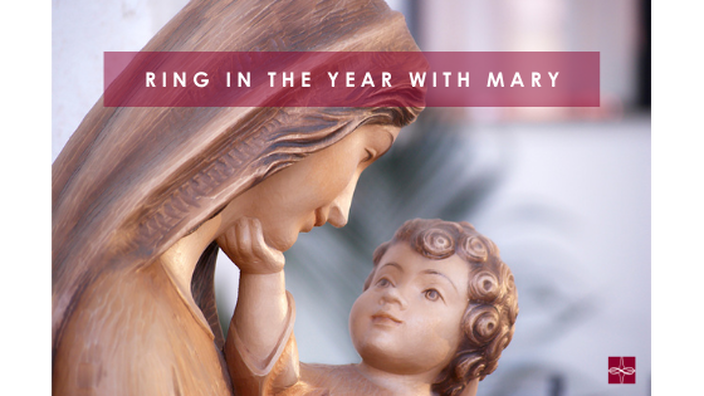
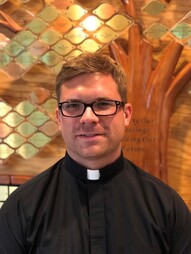
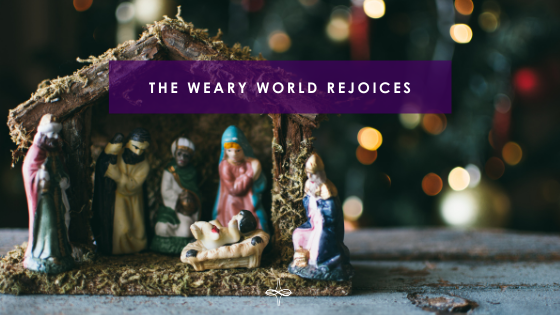

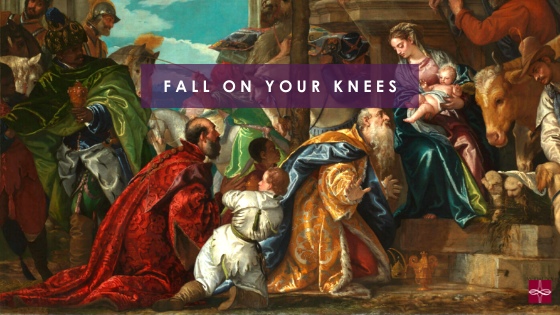
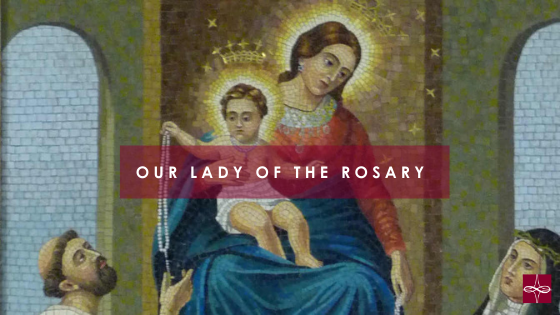
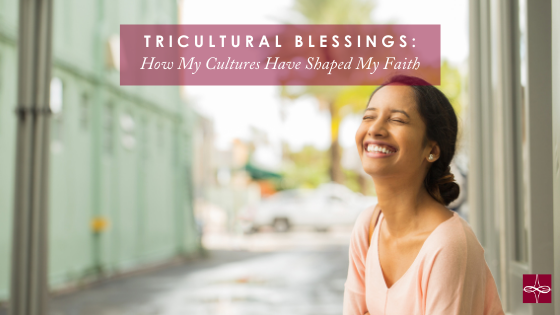
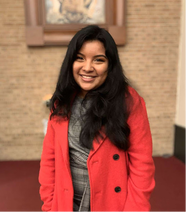
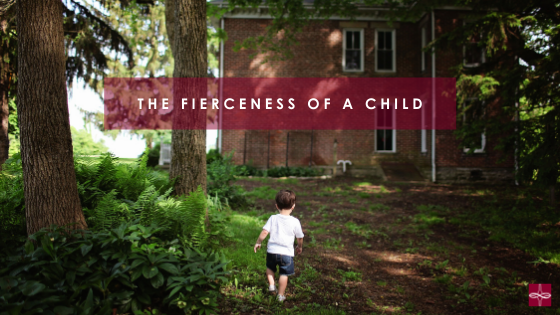

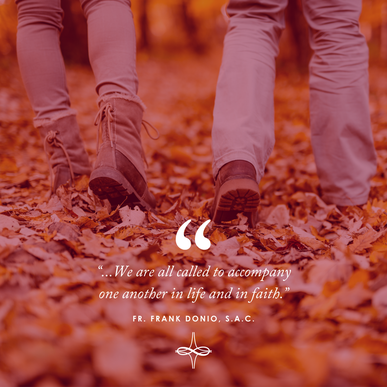
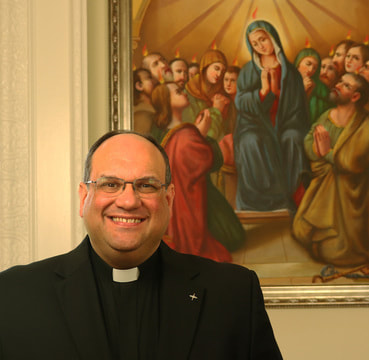


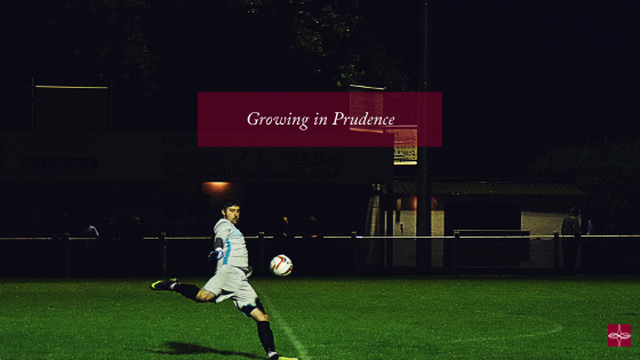


 RSS Feed
RSS Feed